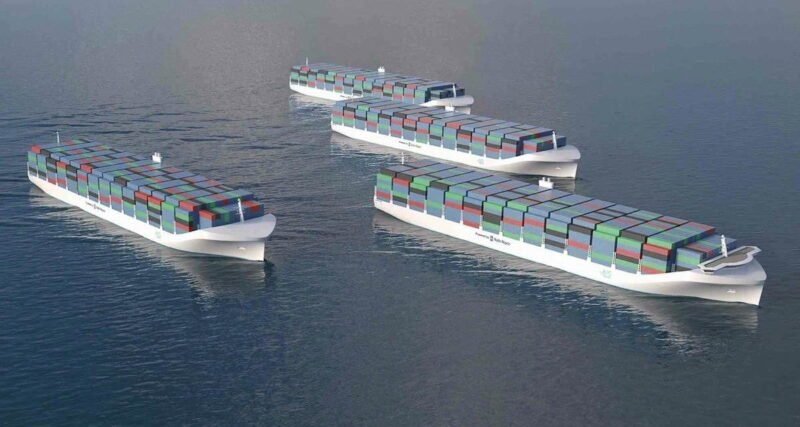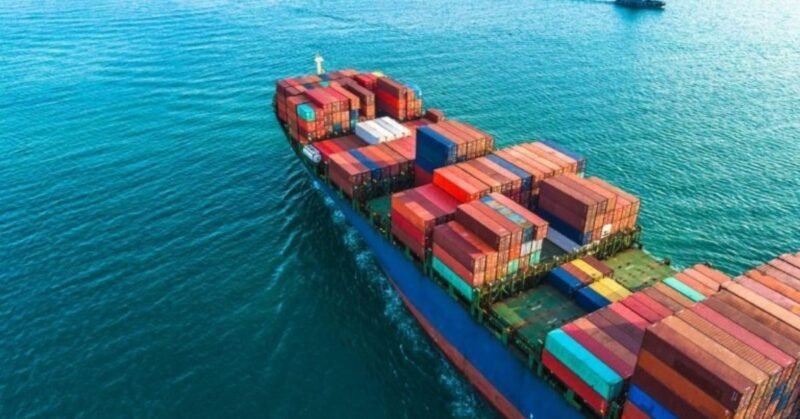“Autonomous shipping is the future of the Maritime Industry. As disruptive as the smartphone, the smart ship will revolutionise the landscape of ship design and operations”. Autonomous shipping is increasingly being explored by the maritime industry. This ships are performed via remote control machines. Autonomous shipping will offer better efficiency, reliability, safety and sustainability for shipping.
The best example of smart shipping is AUTONOMOUS SHIPS. Autonomous shipping allows ships to deal with weather and it can also lead to fuel saving.
Benefits of Autonomous shipping :
There are so many advantage of autonomous ships. Autonomous ships can obviously offer the advantage of reducing the expense of salaries and benefits for the crew members. This is more important for smaller vessels, where crew costs make up a bigger share of total costs.
Automated ships will increase the safety of life, and allow for more efficient use of space in ship design and efficient use of fuel. After reducing the need for human on board the entire vessel can be radically redesigned to improve efficiency in new ways. The autonomous ships will also reduce the risks of piracy. Automated ships are the next generation vessels with no crew members onboard which will be commanded from a shore operating center, where shore masters and engineers will be monitoring and controlling their navigation and performance through detectors, sensors, high-resolution cameras and advanced satellite communication systems.
Automated ships will bring a technological revolution in the shipping industry focusing on increasing the vessels’ efficiency and in fact to offer higher benefits to the shipping companies.
Current project of Autonomous Shipping :
Rolls Royce (AAWA) :
The Advanced Autonomous Waterborne Applications Initiative (AAWA) project, led by Rolls-Royce, introduced the project’s first commercial ship operators: ferry operator Finferries and dry bulk cargo carriers ESL Shipping. The AAWA project bring together universities, ship designers, equipment manufacture and classification societies to explore the economic, social, regulatory and technological factors which need to be addressed to make autonomous ships a reality. It will produce the specification and preliminary designs for the next generation of advanced ship solutions.
ReVolt – next generation short sea shipping :
https://www.youtube.com/watch?v=rhYaNHx5D00
“ReVolt” is a new shipping concept that offers a possible solution to the growing need for transport capacity. DNV GL have developed “ReVolt”, a vessel that is greener, smarter and safer than conventionally fuelled and operated vessels.
Instead of using diesel fuel, “ReVolt” is powered by a 3000 kWh battery. This reduces operating costs by minimising the number of high maintenance parts such as rotational components. The vessel has a range of 100 nautical miles, before the battery needs to be charged. If the energy required for that is harnessed from renewable sources, this would eliminate carbon dioxide emissions.
“ReVolt” does not require a crew. With no crew, there is no need for crew facilities such as the superstructure on board this vessel. The resulting increase in loading capacity, as well as low operating and maintenance costs, mean that compared to a diesel-run ship “ReVolt” could save up to 34 Million USD during its estimated 30-year-life-time.
The concept-ship is currently still being tested. “Building and operating this vessel would be possible with today’s technology. ‘ReVolt’ is intended to serve as inspiration for equipment makers, ship yards and ship owners to develop new solutions on the path to a safe and sustainable future”, says Hans Anton Tvete, Senior Researcher at DNV GL.
YARA :
The vessel YARA Birkeland will be the world’s first fully electric and autonomous container ship, with zero emissions. KONGSBERG is responsible for development and delivery of all key enabling technologies including the sensors and integration required for remote and autonomous ship operations, in addition to the electric drive, battery and propulsion control systems.
A 120 TEU (Twenty-foot Equivalent Units) open top container ship. It will be a fully battery powered solution, prepared for autonomous and unmanned operation. The vessel will reduce NOx and CO2 emissions by reducing diesel-powered truck transport by around 40,000 journeys per year. This eco-initiative will help to meet the UN sustainability goals, and improve road safety and congestion.
Loading and discharging will be done automatically using electric cranes and equipment. The ship will not have ballast tanks, but will use the battery pack as permanent ballast.
To ensure safety, three centres with different operational profile are planned to handle all aspects of operation. These centres will handle emergency and exception handling, condition monitoring, operational monitoring, decision support, surveillance of the autonomous ship and its surroundings and all other aspects of safety.
Conclusion :
Autonomous ships are the future of Maritime Industry. An autonomous ship is a water craft piloted by artificial intelligence (AI). These vessels can potentially be unmanned and function autonomously. Autonomous ships make sailing of ships safer because of reduced human error. There is also less expense because of decreased crew costs. These autonomous ships are developing day by day and this is the biggest revolution in the industry.
References :
– https://opensea.pro/blog/automated-ships
– https://www.youtube.com/watch?time_continue=1&v=HBUZBIxQIjM
– https://www.rolls-royce.com/media/press-releases/2016/pr-12-04-2016-aawa-project-introduces-projects-first-commercial-operators.aspx
– https://www.dnvgl.com/news/revolt-next-generation-short-sea-shipping-7279
– https://www.youtube.com/watch?v=rhYaNHx5D00
– https://www.kongsberg.com/maritime/solutions/ship-types/autonomous-ships/?OpenDocument
– https://www.youtube.com/watch?v=Fwx5DJSO4sc
Share it now








